I have two buttons in Form 1, one is "ShowForm2" button and one is "button1" button.
Button 1 is disable by default. And when I click "ShowForm2" button, Form 2 will show.

So, what I want is, when I click the "button2" in form 2, it will enable the "button1" in form 1.

So, I try to code like this in my form2 class:
public partial class Form2 : Form
{
bool enable_form1_button1;
public bool Enable_form1_button1
{
get { return this.enable_form1_button1; }
set { this.enable_form1_button1 = value; }
}
public Form2()
{
InitializeComponent();
}
private void button2_Click(object sender, EventArgs e)
{
enable_form1_button1 = true;
}
}
Then in my Form1 class, I am expecting to get the "enable_form1_button1 = true" to pass into form 1 and enable my form 1 button1. But how to do this?
public partial class Form1 : Form
{
public Form1()
{
InitializeComponent();
}
private void btb_Showfrm2_Click(object sender, EventArgs e)
{
Form2 frm2 = new Form2();
frm2.Show();
button1.Enabled = frm2.Enable_form1_button1; // I put it here, and it just does not seems right
}
}